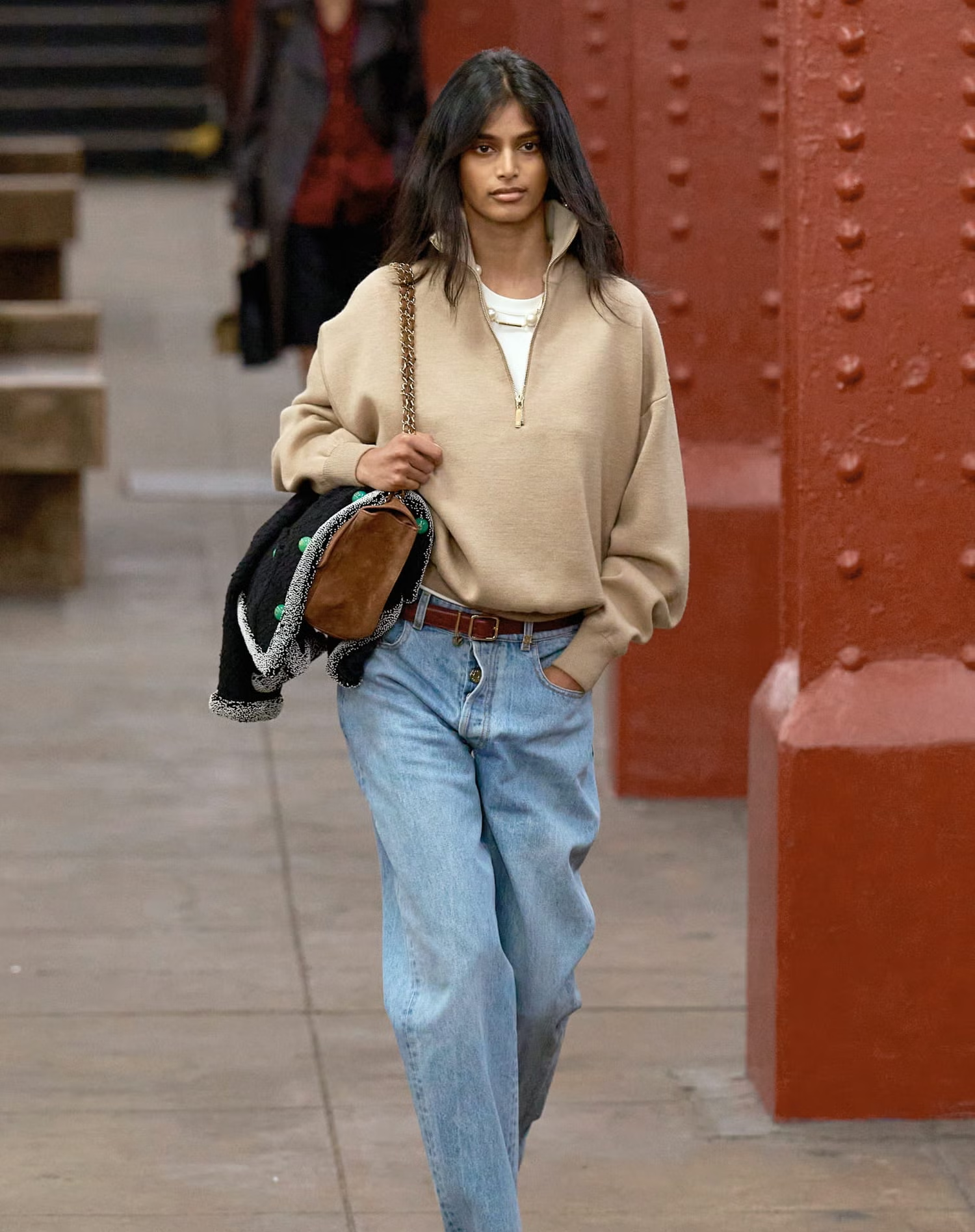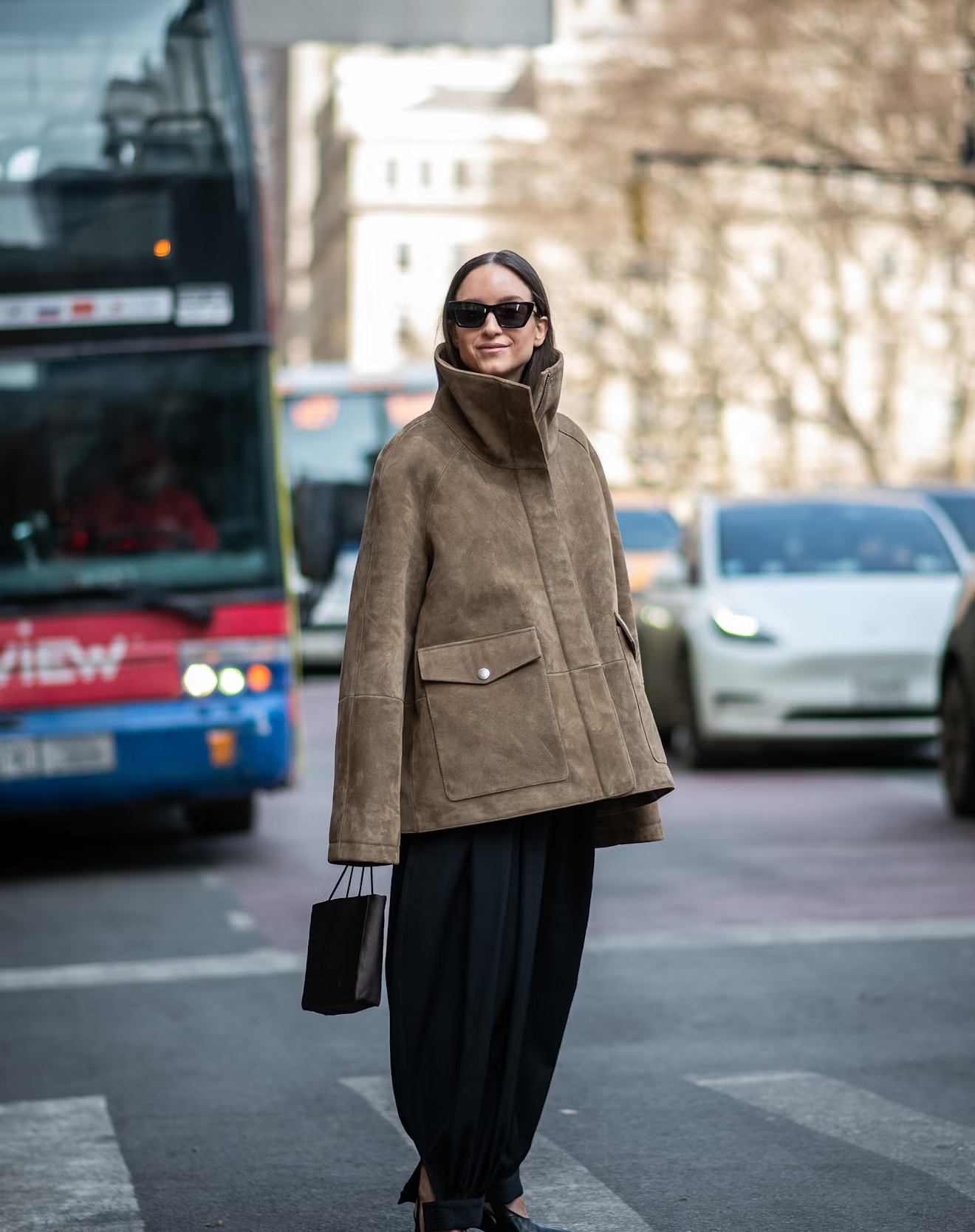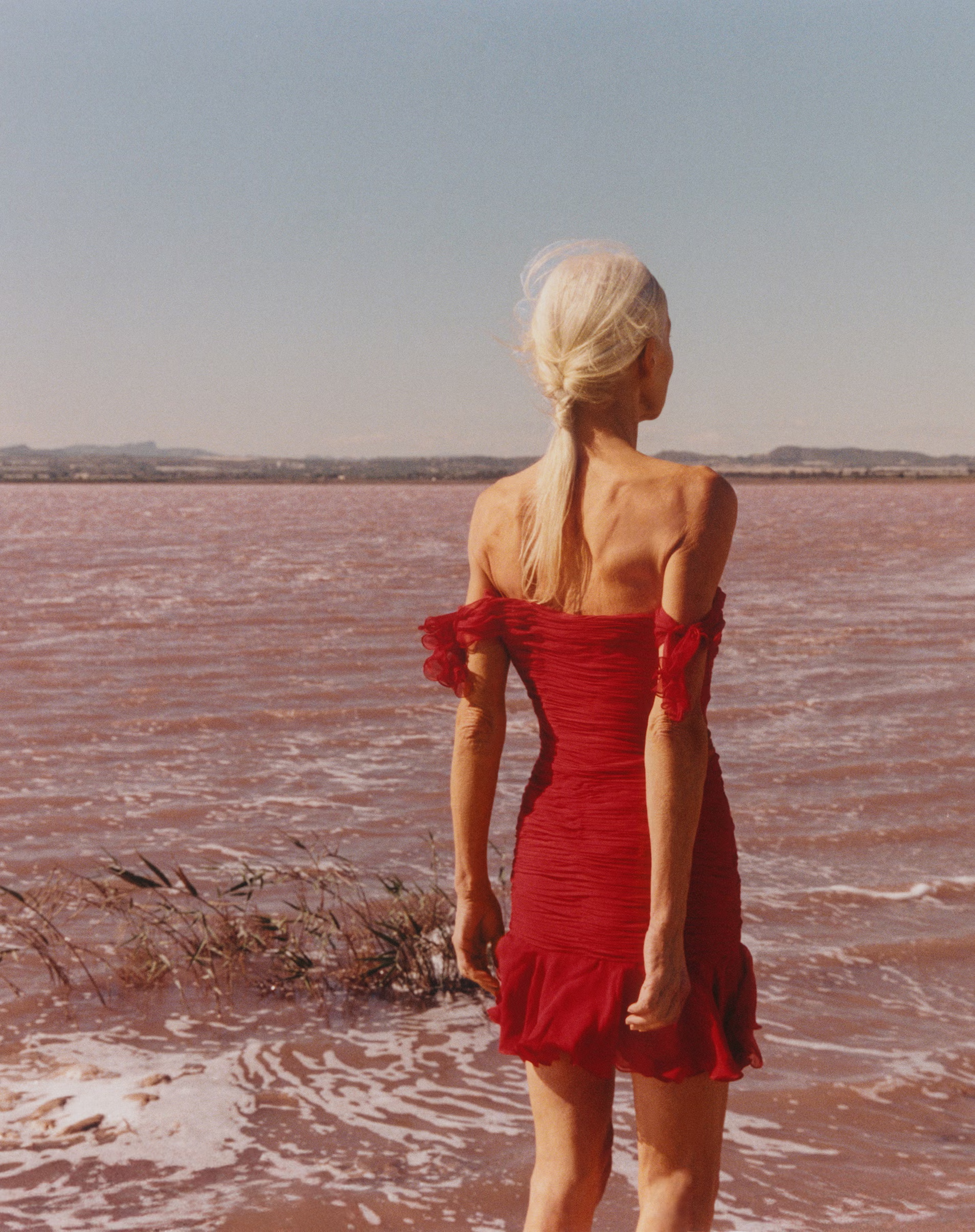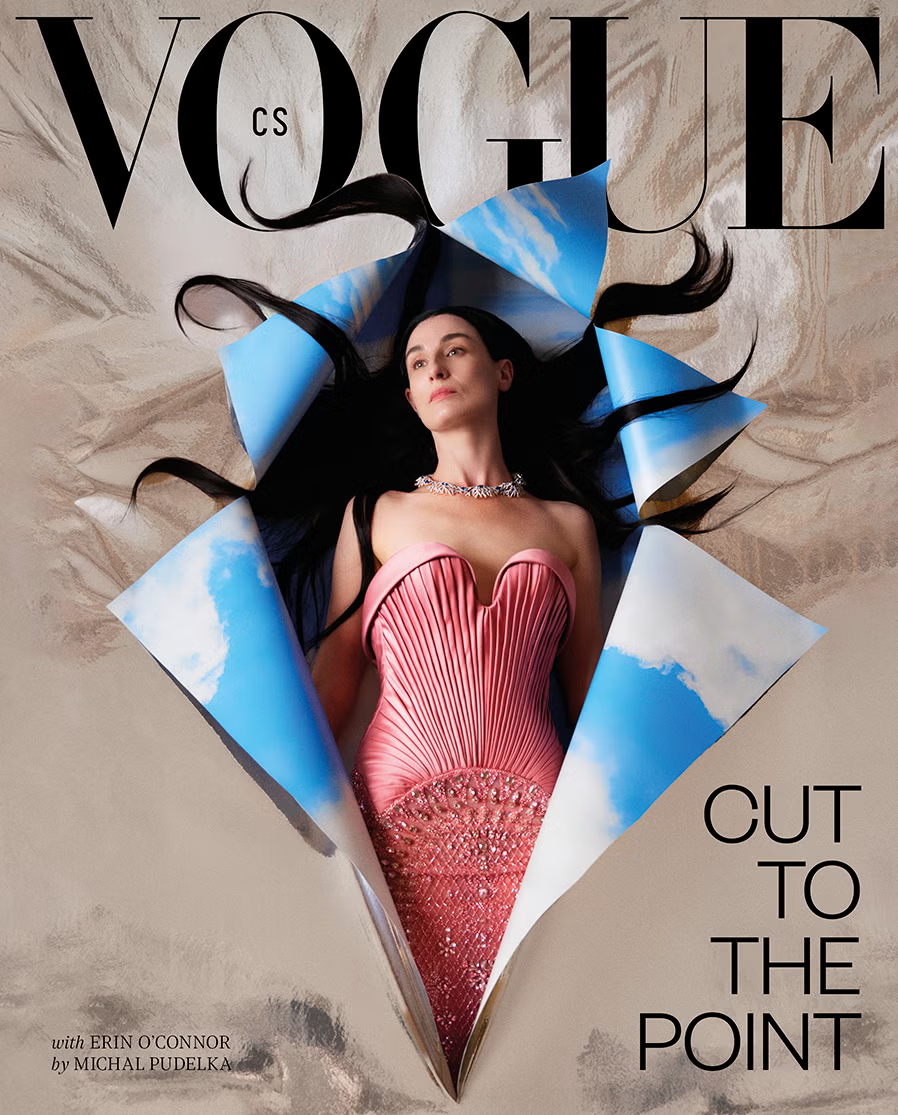Krása

 Foto: MATÚŠ TÓTH
Foto: MATÚŠ TÓTH
Model Arina Maksimova Spreads Awareness About the Lack of Rights for Her Profession
Kristýna Jandová19. 12. 2023
With only 5ft 2in Arina Maksimova, the petite model, is now looking to collaborate with fashion brands that would be willing to focus on clothing for petite people. She is also trying to highlight that models should have the same rights and social security as other professions.

Foto: MATÚŠ TÓTH
Arina Maksimova
When we last spoke, your goal was to open up new conversations about body positivity. Have you seen any progress?
The most important thing has been that magazines and brands have started to notice the wave of petite models. The first step of my mission was to get their attention, and I succeeded. All the major media have been talking to me about it, and I’m very happy that people in the industry are becoming more and more familiar with the issue.
What do you consider to be your greatest achievement this year? And on the flip side, what have you struggled with the most?
My biggest achievement was the Vogue cover and an interview they published. Vogue is still considered to be the number one fashion magazine, so for me, at 158 cm (5ft 2in), getting on the cover of Vogue meant getting recognized by the industry leaders. I was the first petite model ever to manage it. Of course, there are always difficulties. But I’ve reached great heights now, and I feel it’s time to set some new goals. I’ve been talking a lot about smart campaigns with various fashion brands. I believe that collaborations like these will push the boundaries, and eventually ordinary people will benefit from the popularization of the issue as petite people will be able to find clothes that fit them perfectly. But it’s such a complicated process to set up this kind of cooperation, so that’s what I struggled with most this year.
You have recently started to speak out about the rights of models. Can you tell us a little more about this issue?
Everywhere in the world, all kinds of workers have social security. But models don’t. Thousands of people in the modeling industry work every day from 6 a.m. to midnight, sometimes with no days off at all. Most of them start their careers as teenagers, and they spend their lives going to casting calls, doing photoshoots, and on runways, but they don’t have any social security at all. And then the payments for the projects they take part in are always delayed. I know so many models who have got used to waiting up to two years just to receive their rightful money for work that they did on time. Nothing protects them. After decades of modeling they get nothing as a reward – no pension, nothing. I personally had to reschedule one particular shoot because one morning I found some lesions on my face. Unlike other industries, the modeling industry doesn’t provide me with any social security. I had to see the doctor every two days, worrying that I might lose the job and that the illness could be so bad that I’d never be able to work again. I’ve been working as a model for six years now, but I haven’t gained a single penny towards my pension, and even if I managed to work for another 30 years, I still wouldn’t get anything for my retirement.

Foto: MATÚŠ TÓTH
Arina Maksimova
What do you think would help with this issue and how can it be achieved?
I believe labor unions would help. That’s how workers’ rights have been protected in all other industries. Recently, we’ve seen Hollywood professionals trying to get more benefits, and they’ve been able to do that because they have a union to protect them. I think that’s exactly what the modeling industry needs.
Until something is done about these issues in the modeling industry, what do you suggest your colleagues should do?
If I were the president of a model agency, I would at least offer health insurance to all the models on my books. You could easily charge your clients a few extra dollars to cover their insurance. And of course, as an employer, you would also benefit. Models would be more likely to choose your agency, and if they got sick, they would get better faster because they would have expert help, so they would miss out on fewer projects, which is where you get your percentage from.
What keeps you motivated to stay in the industry?
I can see so many social issues in modeling that need to be solved, and I feel that I have enough knowledge and energy to invest in making things better.
What are some of the most valuable lessons you have learned while working as a model?
Someone’s job may look easy from the outside, but it’s actually really hard. Nowadays, people follow designers, make-up and hair artists, models, stylists and producers, and they mostly think that they live glamorous lives because of pictures on Instagram, but they work just as hard as anyone else. I‘ve learned to appreciate the work of all professionals in the creative industries.

1 / 4
Arina Maksimova
How do you maintain a healthy body and a healthy mind?
I try to have massages as often as I can. I also do Pilates and have frequent hot baths. To keep my mind relaxed, I read a lot of books. I always have two different books on the go at the same time, one of which I listen to, and the other one is always a physical book. They help me to take my mind off my day-to-day worries. I take a month to finish them and then choose two new ones.
Do you have any role models?
I don’t have a role model, but I do have a person who did a lot for society and had a beneficial effect on a lot of people’s minds. You know the trend on social media about the Roman Empire that they say all men think about? Well, my Roman Empire is Princess Diana. I appreciate her kindness the most; she was someone who could light up people's hearts. Her example showed me the importance of volunteering, so I always try to be part of any project that could help someone.
What are you looking forward to at the moment?
Taking the next step in developing petite models by working with designers to create a new line of clothing for petite people. I have also set myself a new goal, which is to get the industry talking about protecting the social rights of models.
What is your favorite item in your closet and why? What is on your wishlist?
It has to be my accessories. I always wear a little necklace and a bracelet, which make any boring outfit look a bit more special. And I think I can be considered a lucky girl because I don’t have anything on my wishlist at the moment; it’s completely empty.
Photographer: Matúš Tóth
Creative & visual director: Alexander Bel
Beauty editor: Cindy Kerberová
Styling: Milena Žuravljova
Model: Arina Maksimova
Hair: Anna Plačková
Make‐up: Hristina Georgievska
Production: Monina Nevrlá
Assistant of photographer: Šimon Gut
Creative & visual director: Alexander Bel
Beauty editor: Cindy Kerberová
Styling: Milena Žuravljova
Model: Arina Maksimova
Hair: Anna Plačková
Make‐up: Hristina Georgievska
Production: Monina Nevrlá
Assistant of photographer: Šimon Gut
Vogue
Doporučuje

Trendy
Svetr s límečkem a džíny. Módní kombinace, kterou letos na jaře uvidíte na každém rohu
Alexandre Marain17. 2. 2026
Trendy
Bundy, saka a kabátky, které budete potřebovat na jaře 2026
Augustine Hammond17. 2. 2026
Krása
